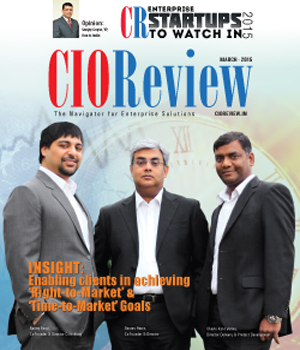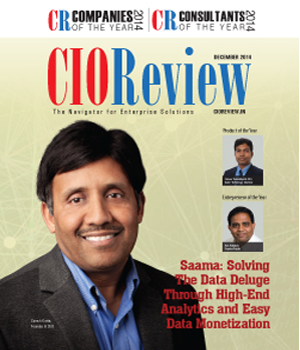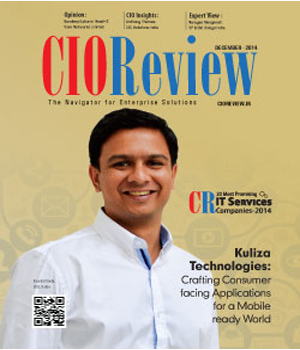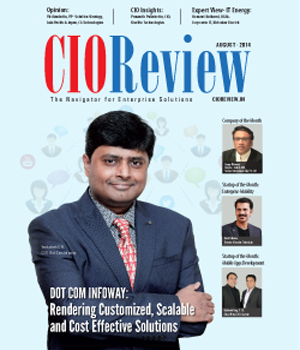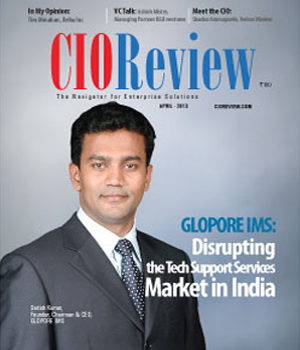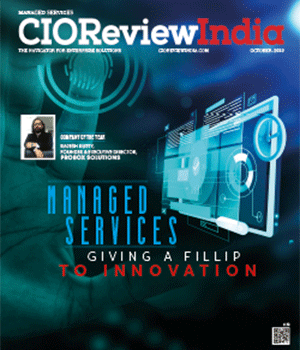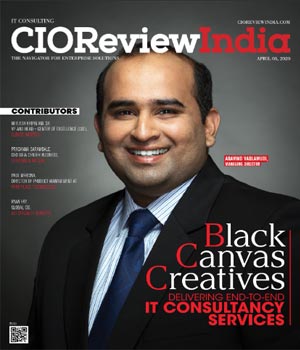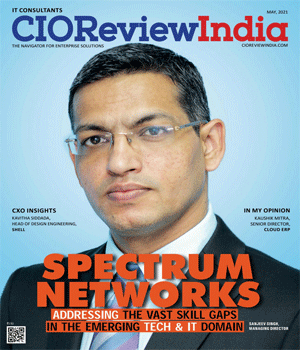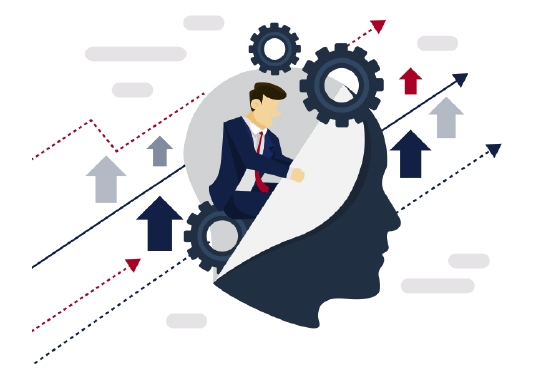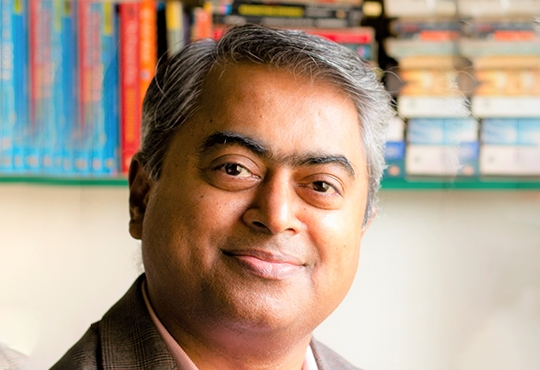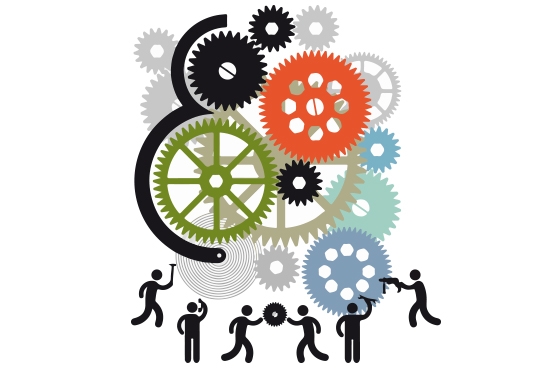
The Future of Technology in India
Srinivasulu Mallampooty Co-Founder & CEO, Employee Experts | Monday, 09 May 2016, 12:24 IST
-
By the year 2020, an entire generation will have grown up in a primarily digital world. Computers, the Internet, mobile
 phones, texting, social networking — all are second nature to members of this group. Which aspect do you think is the next factor driving digitization?
phones, texting, social networking — all are second nature to members of this group. Which aspect do you think is the next factor driving digitization?
Today we are just at the beginning of the digital era, where Technology Innovation Explosion has just started to impact human life. Almost at every key touch point in our life today, we are exposed to technology in one or the other way. For the longest time, the primary consumers and beneficiaries of technology advancement had been a select few in the society and the adoption of the innovation was in a controlled environment. In the past century, entreprisesplayed that elite role and owned innovation process.
However, in the last decade things have changed completely and the technology has become democratized - the primary users and beneficiaries today are the Consumers. This consumer centric focus has broken down the boundaries of technology innovation and suddenly every/any problem faced by anybody in the society is a problem/opportunity innovators to solve. This is the reason for the technology innovation explosion.
Given this context, it will be futile to forecast the technology trends and impact beyond the immediate horizon, as each of the new innovation will lead to many more opportunities to digitize in the real world. Having said this, I strongly feel that the following four things will drive further innovations and digitization in the coming 5 years as they are becoming mainstream:
- Internet of Things: - Nothing will impact people and their lives more in the coming years than the Internet-of-Things (IoT). This is the big idea that is on every innovator’s mind and the effort is on to connect every possible device in the world digitally and put them in the user’s control. With the advent of smartphones and wearable’s, connecting every electronic device in a person’s world and bringing all of them to just one click away from that person will truly drive home revolution.
- 3D Printing - This is still in the early stage of innovation cycle and will completely change the way we do business. It is the next stage of human endeavor, to expanding the way knowledge is shared and used. It is the next biggest thing after publishing and Internet in democratization of knowledge.
- Collaboration - Communication is the biggest need of humans ever since the early evolution process. Collaboration tools are making the world smaller each day by connecting people digitally from all parts of the globe. This will be a key demand for sharing all kinds of content - photos, videos, etc., sharing instantly among people. The technology around internet speeds and storage capacity will see a lot of innovation which will speed up the collaboration capacity.
- Access Control and Data Security - All the digitization innovations will increase transparency, connectivity and data sharing in a boundary-less manner. With this, the need for Data access security and privacy will increase many fold, as the old way of managing data will not work in the digital world. This is one more area that will see a lot of new innovations.
- The effects of an increasingly digitized world are now reaching into every corner of our lives because few forces are powerfully reinforcing one another. One of them being ‘Consumer pull’. Tell us about India’s reaction towards digitization.
India has been a quick adopter to new technologies and tools. Latest example for this is the mobile phone adoption levels in the country. Even consumers who are not very well educated with basic English are using SMS services actively. Similarly, any of the digital innovations that focus on communication that empower people will see a faster adoption without any education and exposure barriers.
Along with various communication tools, e-commerce, online learning and Entertainment content are going to be the major fields where Indian market will see faster and effective adoption. The current government initiatives like Digital India will help people adopt the technology faster. Mobile app driven government services are reaching to the remotest corners of the country and are impacting those who need empowerment the most. A good example is the recent announcement from the Indian government - the job portal that will be set up for aspirants to apply for Government jobs.
However, what we are seeing is only the tip of the iceberg. As network quality and data connectivity improve, the digitization on the consumer side will increase and the applications would spread to a lot more industries than what we are witnessing today.
- 2016 is expected to be the year of digital transformations where enterprise collaboration will play a major part in achieving organizational goals. Share your thoughts on this.
Collaboration has always been the key to organizational success. This was not a huge challenge earlier but today it has become due to factors like Global/ virtual teams, atomization of work and increasing work life activities. Employees today demand flexible work hours. Thus, face to face collaboration is rapidly being replaced by digital collaboration and there is a growing need to tap into this mode of collaboration for organizational success.
Organizations have already been experimenting with different types of collaboration tools. In a recently published study by The Economics Times, which stated that employees reported that 88% of them check emails and work status after they reach home and feel the need to connect with their co-workers either via official collaboration tools or personal apps like Viber and Whatsapp?
What we should see in 2016 and the coming years is increasing connectivity between collaboration and work, especially leveraging collaboration for organizational success. Measuring performance and tracking organizational goals which now cannot happen in silo, and they would need collaboration tools. These collaboration needs should be in the context of work and should support the Organization's performance.
- Digitization of creative industries has led to increased competitiveness, job creation and economic growth. How will digitization in India drive employment?
Digitization of creative industries has led to a wide global market to tap today. Creative needs like logo design or website design can be serviced from anywhere in the world. India is beginning to jump on this bandwagon as we now have more creative professionals leveraging digital tools to enhance their services and market their products.
Besides creative industries, where we are seeing growth in employment due to digitization in India are the emerging sectors like eCommerce, Home delivery, Transport, Home services, Health care and education. These sectors have been revolutionized due to digitization and have opened up possibilities where none existed before. For instance, any qualified person with an Internet connection at home can provide tutoring via Internet.
As this trend expands to other sectors like micro finance and agriculture, it will drive further growth. More than creating employment, digitization is helping in converting unorganized labor into organized labor which is a better format as it creates transparency, opens up opportunities and access to employment in these sectors.
CIO Viewpoint
With Managed Services Organizations Can Reduce...
By Krishnakumar Madhavan, Head IT & Innovation, KLA Software India Pvt Ltd
By Amandeep Singh, Vice President & Group Head - IT Infrastructure, Thomas Cook India Limited
By Brian Clarke, Solutions Architect-Networking and Collaboration, OneNeck IT Solutions
CXO Insights
Innovation in IT: Meeting Evolving Demands and...
By K Shivasankar, Vice President - Technology & Solutions, India, NTT DATA Inc
Low-Code/No-Code: The Key to Intelligent...
By Sachin Panicker, Chief AI Officer, Fulcrum Digital
Maximizing Business Insight with Big Data...



